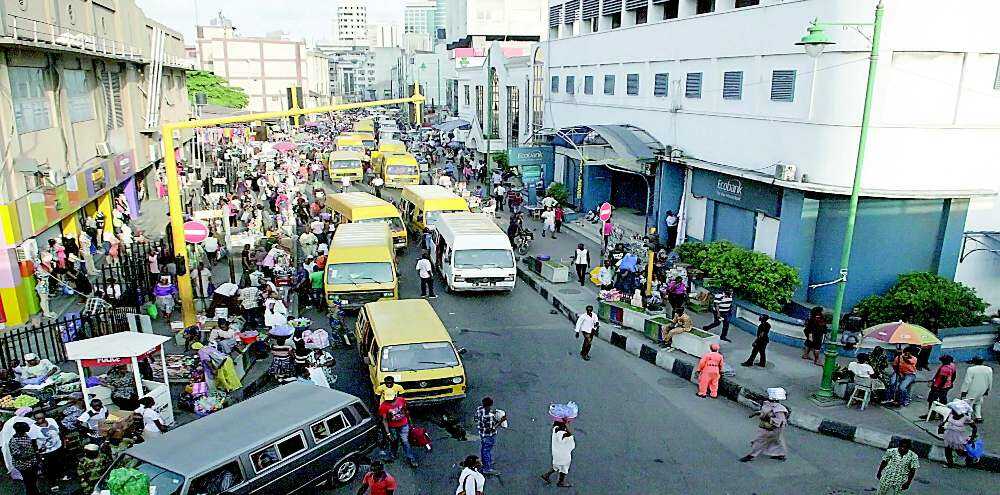By Yinka Kolawole
Nigeria seems to be losing out in trade with other African countries as reflected in a 33.8 percent decline in trade balance with the continent to N1.86 trillion in 2021 from N2.81 trillion in 2019.
This development, coming ahead of the full implementation of the African Continental Free Trade Area (AfCFTA), also led to a decline in the percentage of Nigeria’s trade with Africa compared to the rest of the world to 7.45 percent in 2021 from 13.91 percent.
Private sector operators attributed the downward trend in the nation’s trade balance with the rest of Africa to supply chain disruptions, high cost of production making Nigerian exports not competitive, and the scarcity of forex needed to import critical input for production.
Among other things, the above factors were behind the apprehension over the readiness of Nigeria for a regional trade deal like AfCTA, with private sector operators expressing fears that the country might become a dumping ground for goods from other countries.
Financial Vanguard analysis of Foreign Trade in Goods data for Q4 2021 from the National Bureau of Statistics (NBS) shows that the volume of exports to the continent dropped by 38.5 percent to N2.41 trillion in 2021 from N3.92 trillion in 2019, while imports within the same period declined by 50.3 percent from N1.11 trillion to N551.31 billion.
The data is based on NBS’ reviewed figures for 2020 and January to September 2021.
Further analysis of the NBS data shows that Nigeria’s imports from Africa in 2019 amounted to N1.11 trillion while exports to the continent stood at N3.92 trillion, indicating a surplus of N2.81 trillion; in 2020, imports from Africa stood at N406.88 billion against exports of N2.37 trillion resulting in N1.96 trillion surplus; while Nigeria imported goods worth N551. 31 billion in 2021 and exported N2.41 trillion worth of goods to the continent, showing a surplus of N1.86 trillion.
This shows a declining trend in the trade balances between Nigeria and the rest of Africa over the three-year period under- N2.81 trillion surplus in 2019, N1.96 trillion in 2020, and N1.86 trillion in 2021, indicating 30.2 percent and 5.1 percent decline, respectively.
Overall, NBS reported that Nigeria’s total merchandise trade with Africa in 2021 was N2.96 trillion, representing a 6.47 percent increase over the N2.78 trillion recorded in 2020, but 41.15 percent lower than the N5.03 trillion merchandise trade recorded in 2019.
Within the West African sub region, in 2021, Nigeria’s total trade with the Economic Community of West African States (ECOWAS) amounted to N1.32 trillion comprising N1.24 trillion exports and N82.48 billion imports, a surplus of N1.16 trillion. In 2020, the trade with the sub region was N916.35 billion – N841.33 billion exports and N75.02 billion import, a surplus of N766.31 billion while in 2019, Nigeria’s trade with ECOWAS was N2.46 trillion made up of N2.24 trillion exports and N215.79 billion imports, indicating N2.02 trillion surplus.
This shows that the trade surplus with ECOWAS dipped over the three year period – N2.02 trillion surplus in 2019; N766.31 billion in 2020; and N1.16 trillion in 2021.
Further analysis of the NBS data shows a decline in the percentage of Nigeria’s trade with Africa compared to the rest of the world from 2019 to 2021.
The total volume of Nigeria’s global merchandise trade in 2019 was N36.15 trillion comprising of N16.96 trillion imports and N19.19 trillion exports; N25.22 trillion in 2020 – N12.70 trillion imports and N12.52 trillion exports; and N39.75 trillion in 2021 – N20.84 trillion imports and N18.91 trillion exports.
In 2019, the percentage of Nigeria’s continental trade to the rest of the world was 13.91 percent; 11.02 percent in 2020; and 7.45 percent in 2021.
Stakeholders react
The decline in the trade figures is despite AfCFTA agreement which started in January 2021. Analysts had expressed optimism about the country’s trade prospects under the free trade agreement.
Reacting to the findings, Dr Chinyere Almona, Director General, Lagos Chamber of Commerce and Industry (LCCI), said Nigeria needs a roadmap to enable businesses to explore opportunities of AfCFTA.
Vanguard News Nigeria

